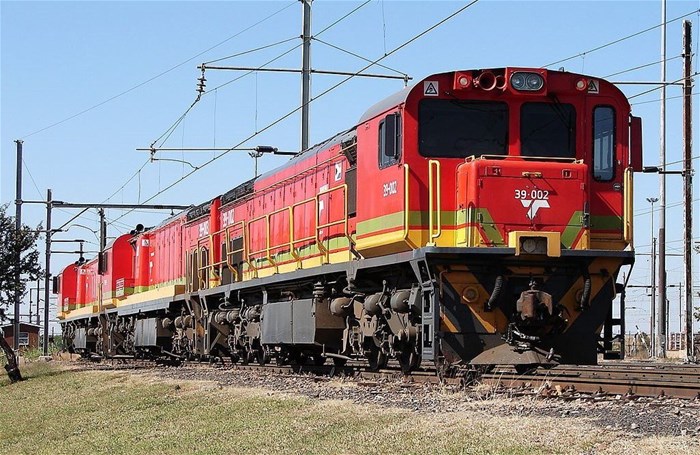Transnet Freight Rail (TFR) has introduced a new operating model, which will bring about significant efficiencies for customers - decentralising key responsibilities to ensure a more responsive rail freight network that is better equipped to service the South African economy. Newly appointment management executives will be responsible for the corridors, and drive operational performance and volume growth for the business.
TFR is the largest division of Transnet SOC Ltd and maintains an extensive rail network across South Africa that connects with other rail networks in the sub-Saharan region. Its rail infrastructure represents about 80% of Africa's total capacity.
"Some of our customers want to feel we are closer to their needs, and better able to respond on the ground. We must be responsive to that," says Sizakele Mzimela, chief executive of TFR.
"We also have to decentralise key operational decisions so that we can be more flexible around operational decisions.
"To address this, we are introducing the concept of six operational 'corridors' from 1 August 2020, each with their own localised decision-making structures at operational level. This will ensure higher levels of operating efficiency, a more dynamic approach to costs and pricing, and greater customer satisfaction."
Strategising business corridors
Mzimela said TFR’s ability to move cargo in and out of the country has a direct bearing on the performance of the South African economy "and it is in the national interest – and the interests of Transnet as a whole – that TFR performs at an optimal level".
“We see the new strategic business corridors as the operational nucleus for TFR’s growth, and with it the growth of the South African economy. It will be where the key leadership and technical capacity is located, so we can pay greater attention to moving cargo with speed from production points to ports, and vice versa.
"This will enable us to regain market share, particularly in the general freight business, which has moved increasingly to road transport, while maintaining our presence in heavy haul commodities such as coal, iron ore and manganese."
She said TFR’s new operational structure – which was recently approved by Transnet SOC Ltd’s Exco – was geared to move TFR away from a multi-layered organisation towards a flat structure that delivers operational efficiency.
"The previous structure was cumbersome and top-heavy, at a time when we need increased technical capacity dedicated to operations and customer service."
"In addition to increasing our customer responsiveness, the new business model will empower Transnet executives at local level and ensure a closer focus on the needs of their customers," Mzimela said.
The following executives – all internal candidates – have been appointed to run the corridors:
• Ms Mandisa Mondi, North Corridor, to be based in Richards Bay
• Ms Chuma Mokoena, Natal Corridor, to be based in Durban
• Mr Lloyd Tobias, Cape Corridor 1, to be based in Saldanha
• Mr Mashudu Makatu, North-East Corridor, to be based in Nelspruit
• Mr Rudzani Ligege, Central Corridor, to be based in Pretoria.
The appointment process for Cape Corridor 2 (Kimberley/Port Elizabeth) is currently underway.
"There is a tremendous depth of knowledge within the business, and we are determined to empower those with the technical knowledge and customer understanding so that we are better-placed to meet the demands of the post-Covid 19 economy," Sizakele added.












































